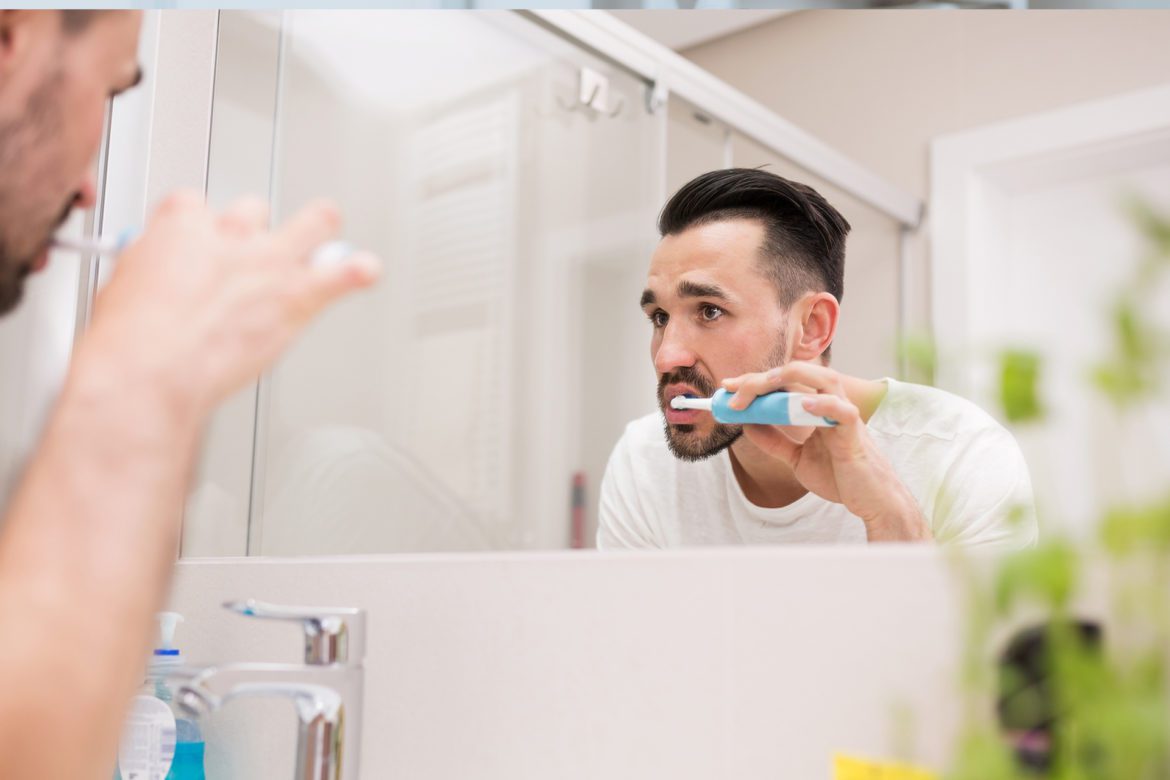Chances are, that’s where most of us first learned how to take care of our teeth. However, over the years, we may have picked up some bad dental hygiene habits, contributing to issues like tooth sensitivity.
The good news is that it’s never too late to make positive tweaks to your dental care routine.
Here are five dental care mistakes you could be making, and how to fix them:
1. Brushing your teeth horizontally, too hard, or too frequently
While you may be tempted to brush your teeth harder and more often, overdoing it could wear away your tooth enamel, leading to tooth sensitivity. Besides that, brushing horizontally can also squeeze your gums and cause your teeth to hurt or develop dull pain over time.
Here’s the proper way to brush your teeth:
- Brush the outer surface of your upper and lower teeth
- gently
- Tilt your brush at a 45° angle, and brush along the gum line
- Use a 45° angle to brush the inside of the
- teeth in a forward and backward motion
- Use a short back-and-forth motion to clean the chewing surface of your
- teeth
- Brush your tongue
- Floss each time after you brush your teeth to get rid of food residue
2. Having too much sweet or acidic foods and drinks
Some foods are bad for your teeth, and eating them can lead to a variety of issues. For instance, sugary or acidic foods and drinks can contribute to tooth decay and enamel erosion, which can lead to heightened tooth sensitivity.
To prevent that, limit your intake of foods and beverages that are too acidic, sweet, hot, or cold.
3. Not using the right toothpaste or toothbrush
Some toothpastes and toothbrushes may not suit your teeth and gums, and cause irritation or sensitivity. For example, toothpastes that contain whitening agents or baking soda may be too harsh for some people. Similarly, toothbrushes that have hard or medium bristles may damage your enamel and gums.
To avoid these problems, you should choose a toothpaste that is designed for sensitive teeth, and a toothbrush that has soft or extra-soft bristles. You should also replace your toothbrush every three to four months, or when the bristles become frayed.
4. Skipping regular dentist check ups just ’cause you feel okay
Even if you don’t have any obvious dental problems, you should still visit your dentist at least once every six months for a routine check up and cleaning. This is because some dental issues, such as cavities and gum disease, may not have any noticeable symptoms until they become severe. By then, you may need more extensive and costly treatments to fix them.
Regular dental visits can help prevent, detect, and treat dental issues before they worsen. Your dentist can also give you advice on how to improve your oral hygiene and care for your teeth and gums.
5. Putting off dental issues until it’s too late
Sometimes, you may experience some minor dental discomfort, such as a toothache, bleeding gums, or tooth sensitivity.

